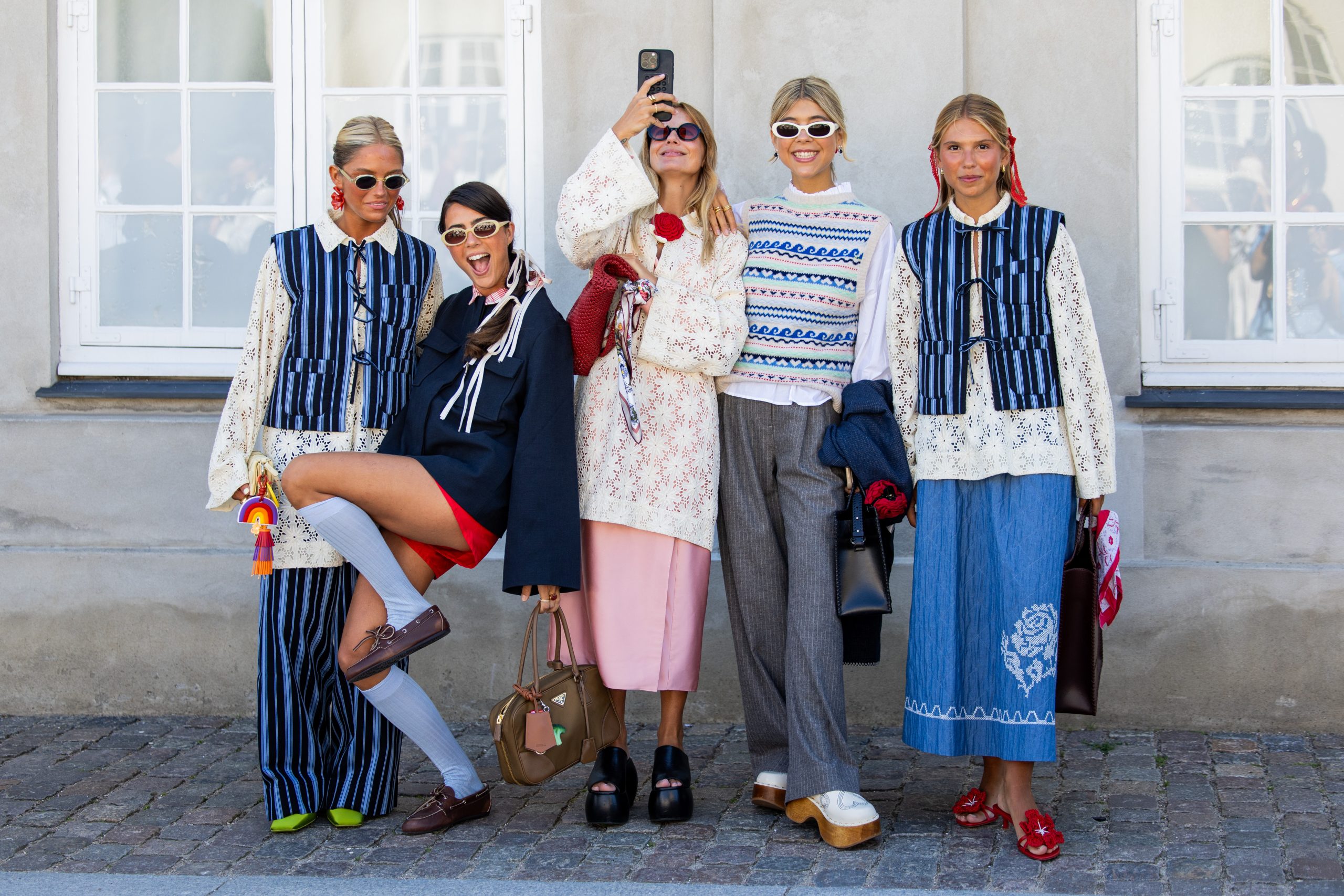
The Unmistakable Allure of Scandinavian Style
Scandinavian fashion is instantly recognizable for its minimalist yet expressive nature, characterized by daring prints, crisp linens, and bold color blocking. Copenhagen, in particular, has become a global trendsetter, with its fashion ethos embraced by style enthusiasts around the world. Beyond introducing unexpected combinations and vibrant color palettes, Copenhagen’s fashion scene has also elevated the conversation around sustainability within the industry.
In 2020, Copenhagen Fashion Week (CPHFW) set new standards for participating brands, emphasizing sustainability as a core value. These guidelines, updated in March 2024, require brands to maintain an approved sustainability strategy, adhere to circular design principles, and ensure that at least 60% of their collections are made from certified or deadstock fabrics. Other initiatives include reducing single-use props and packaging and upholding social standards.
Cecilie Thorsmark, CEO of CPHFW, highlighted the importance of these efforts, saying, “I feel relieved that our fashion week represents the beauty of the industry and supports emerging brands. Even as a small or medium-sized enterprise, you have to think about these things because you have the ability to inspire those huge players and brands out there. We’re not perfect, but we are trying to foster a healthier relationship with fashion.”
During the Spring/Summer 2025 edition of CPHFW, the streets and runways of Copenhagen came alive with billowing skirts, dynamic patterns, and adaptable, grungy streetwear. These styles, paired with innovative sustainable practices, showcased the city’s potential to lead the fashion industry into a more environmentally conscious future.
Innovative and Sustainable Collections
Deadwood Studios’ runway show stood out by merging its indie sleaze aesthetic with sustainable practices. Designers Carl Ollson and Felix von Bahder showcased upcycled leather and discarded textiles, transforming them into moto jackets and nostalgic tees. Their ability to breathe new life into overlooked materials highlighted the brand’s commitment to sustainability and creativity.
Meanwhile, at Copenhagen’s Øperaparken, Marimekko delivered a whimsical burst of color with their SS25 collection, The Anatomy of Flowers. Known for their iconic floral prints, Marimekko took a more abstract approach this season, introducing new silhouettes like chic polo dresses that brought a sporty edge to their lineup. True to their eco-conscious ethos, many garments were crafted from certified organic cotton, and leftover fabric was repurposed into accessories like scrunchies and keychains.
Baum und Pferdgarten took the concept of “office-siren” to new heights, blending corporate-core-inspired pieces with athletic elements such as pinstripes, numbered jerseys, and sporty sets. The collection’s practical yet stylish appeal was underpinned by its commitment to sustainability, with over 50% of the materials sourced from recycled, organic, or environmentally certified origins.
Sustainability at the Core
With CPHFW’s Sustainability Requirements in place, all runway shows and presentations aligned with this forward-thinking approach. At the Copenhagen International Fashion Fair (CIFF), both Scandinavian and international brands showcased their latest offerings, many of which featured innovative sustainable practices.
Material innovation was a standout theme at CIFF and CPHFW SS25. Berlin-based luxury brand International Citizen incorporated next-generation post-consumer materials like recycled nylon and responsibly certified wool into its collection. Danish activewear brand Organic Basics pushed the boundaries of materiality with workout sets and sports bras crafted from wood-based fabrics like TENCEL™ Lyocell and LENZING™ ECOVERO™. DawnxDare, a Danish knitwear brand, presented one-of-a-kind hand-knit pieces made from discarded yarn, further emphasizing the importance of sustainable practices in fashion.
Exploring these groundbreaking elements at Copenhagen Fashion Week offers the industry a glimpse into a future where fashion and environmental responsibility coexist harmoniously. As other international fashion weeks approach, there is hope that these advancements will inspire a global shift toward more sustainable practices, extending far beyond the Scandinavian region.